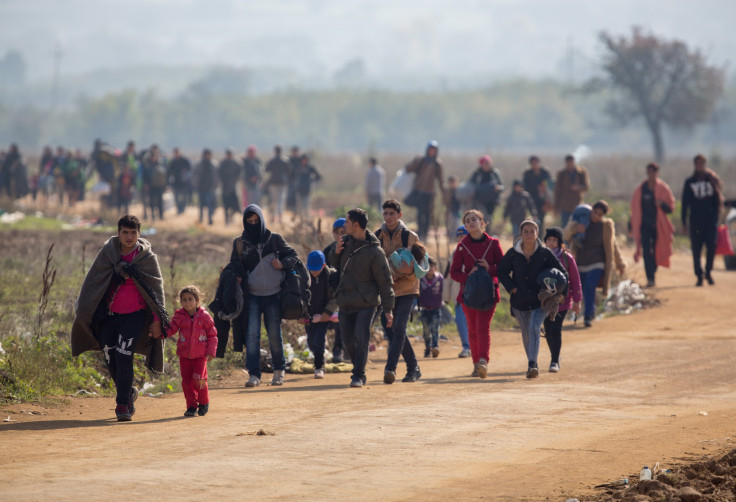Europe's Refugee Crisis: Slovenia Threatens To Close Borders If EU Plan Fails, Tony Abbott Urges EU To Shut Borders

UPDATE: 5:59 a.m. EDT -- Austria is considering fencing off its border with Slovenia through “fixed constructions” on crossings to allow for an “orderly” inflow of refugees, Interior Minister Johanna Mikl-Leitner told ORF radio station Wednesday, according to Bloomberg.
“Whether we want it or not, people are marching toward Germany,” Mikl-Leitner said, during the interview cited by Bloomberg.
The statement follows Slovenia’s comments Tuesday that it might follow Hungary in building fences along its border with Serbia.
Original story:
Slovenia said Tuesday it may join Hungary in fencing off its borders if the European Union doesn’t help the countries on the southeastern side of the continent amid the ongoing refugee crisis, raising the risks of ending a visa-free travel in the region. The threat comes as Australia’s former prime minister Tony Abbott on Tuesday urged the EU to close its borders in order to avoid a "catastrophic error."
Slovenia’s Foreign Minister Karl Erjavec said if the situation in the region worsens, and the 17-point plan agreed by EU leaders on Sunday is not put in place, the country will “adopt all measures” to ensure the safety of its citizens and refugees currently residing there, Bloomberg reported Tuesday, citing STA state news service.
Meanwhile, EU President Donald Tusk seconded Italian Foreign Minister Paolo Gentiloni’s alarm on Monday of free movement of people being at risk, and iterated that the region's exterior frontiers must be protected.
“This challenge has the potential to change the European Union we have built,” Tusk told EU lawmakers on Tuesday in Strasbourg, France, according to Bloomberg, adding: “It has the potential to create tectonic changes in the European political landscape, and these are not changes for the better.”
The 17-point plan had promised to offer short-term fixes for a million or more refugees who are expected to reach the EU this year. According to the plan, nearly 400 police officials will be sent to Slovenia to help the country guard its borders, besides providing emergency housing to nearly 100,000 refugees. The countries also agreed to increase the speed of the refugee registration system and boost the policing on the bloc’s southeastern edge.
Slovenia had become a bottleneck after Hungary closed its borders with Serbia and Croatia. Slovenia’s police said that nearly 85,000 refugees have crossed into the Alpine nation so far.
The European nations have adopted different policies amid a lack of coordination in the bloc over the continent's worst refugee crisis since the Second World War. While Germany-led moves aim to distribute refugees across the EU with mandatory quotas, the countries on the eastern side say the refugees don’t want to stay in their territory.
Abbott said at a lecture late Tuesday in London that the EU should shut its borders and learn from Australia. The address, which received mixed responses, was the first major speech for Abbott after he was ousted last month.
“People smuggling is a global problem, and because Australia is the only country that has successfully defeated it -- twice, under conservative governments -- our experience should be studied,” Abbott told a gathering of British conservatives, according to Huffington Post Australia, adding: “All countries that say 'anyone who gets here can stay here' are now in peril, given the scale of the population movements that are starting to be seen.”
Abbott also urged the EU nations to turn around the refugee boats and lock their borders.
"It will require some force, it will require massive logistics and expense; it will gnaw at our consciences," Abbott said, according to the Post, adding: “Yet it is the only way to prevent a tide of humanity surging through Europe and quite possibly changing it forever.”
© Copyright IBTimes 2024. All rights reserved.






















